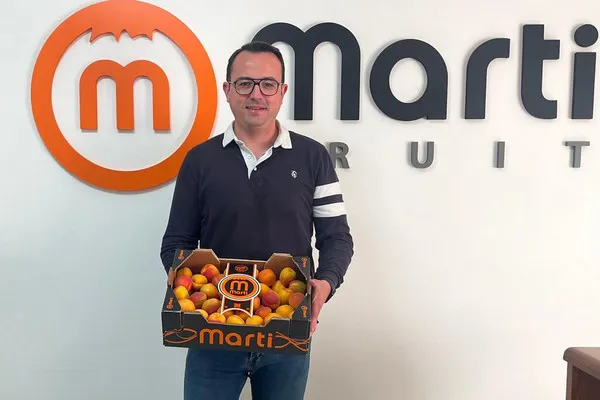The first Spanish apricots of the season come from the earliest areas of Murcia and usually hit the market in week 15. However, this year they have arrived even earlier as a result of an unusually warm winter and spring, without any rainfall.

"We began harvesting and selling apricots last week," says Martí Sentandreu, manager of Marti Fruit, based in the town of Llutxent, in the Spanish province of Valencia. "We can get 10 to 15 days ahead of the first apricot volumes in Spain thanks to our plantations located in ultra-early areas, like Campos del Río, in Murcia. Normally, we can harvest these varieties by mid-April, but this year we have managed to get by between a week and 10 days ahead, as the winter has been warmer."
According to Sentandreu, while the harvests in recent years have been very variable in terms of volumes, "this year a good harvest is expected in the first phase and, although the apricot production won't be that big, we will still be able to fulfill all orders."

The company has been working with extra-early varieties for a few years; varieties which, in addition to earliness, offer an outstanding taste and Brix. "We have achieved significant progress here and that's the reason why we can start so early," says Sentandreu. "Without a doubt, we stand out in the market precisely because we are able to arrive earlier with tasty varieties that are accepted by consumers from the start; something that had been challenging until recently. That's our commitment, and we are already seeing the results."
"It is harder to find loyal clients for the varieties that do not have as good a taste, whereas for the new varieties we have, orders are more recurrent and sales quicker, since consumers repeat their purchases," says the manager of Marti Fruit. "We take full advantage of this market window, which allows us to obtain much better prices than at the peak of the season," he says.

This week, the company is starting with the early peach harvests and will continue with the nectarines and flat peaches. Their main products are stone fruit, primarily grown in Murcia and, to a lesser extent, in Valencia, as well as kakis, which are produce in the Region of Valencia. Their fruit is supplied to supermarket chains and wholesale markets mainly in Germany, Italy, France and Belgium.
Marti Fruit is also planning to add plums to its product range. "We are looking for suitable varieties that meet our quality requirements and standards," says the company's manager.
 For more information:
For more information:
Martí Sentandreu
Marti Fruit
C/ Les Escoles, 50,
46837, Quatretonda (Valencia). Spain.
T: +34 962 264 791
martifruit@martifruit.es
martifruit.com
